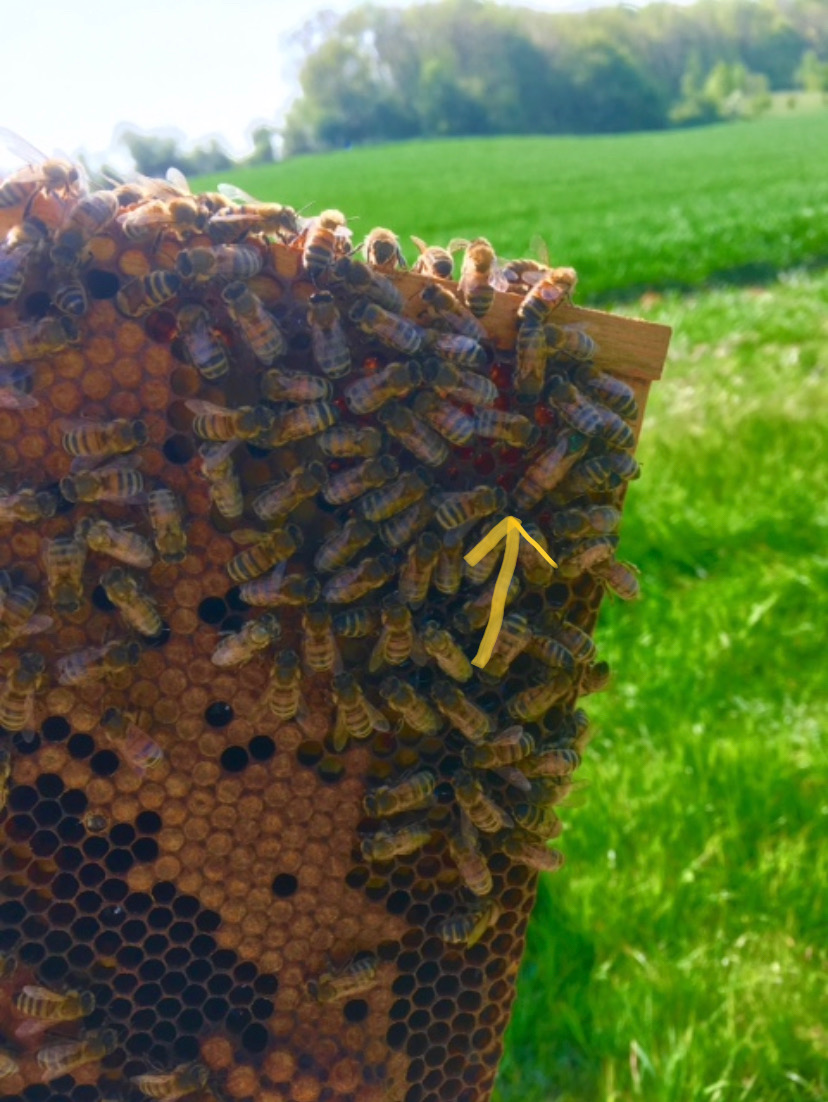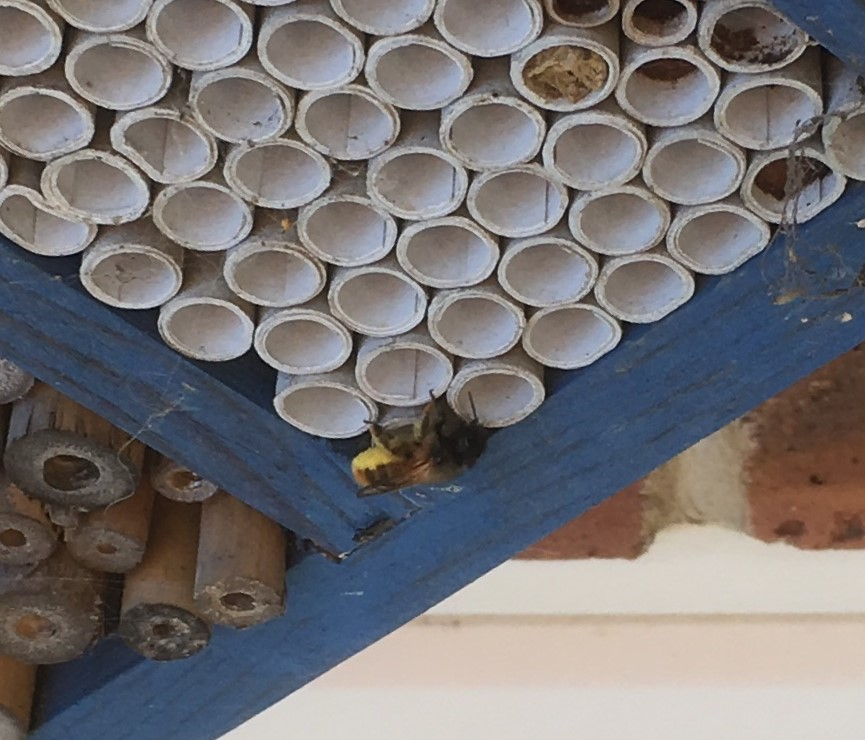pan-european assessment, monitoring, and mitigation of stressors on the health of bees
Semi-field work in a time of global pandemic
PoshBee’s long-term objective is to support sustainable beekeeping and healthy bee populations, including wild bees. Similarly to its effect on many other areas of life, the current pandemic situation poses a challenge for the project.
Robin Dean of The Red Beehive Company in the UK addresses some of the challenges he and his team are experiencing.
One hindrance for Robin is that he cannot recruit staff members in the current situation, because of the challenge of maintaining social distancing during fieldwork. Despite this, Robin’s work has to continue, as the bee stocks that were set up in the autumn of 2019 still need to be inspected and managed for use in the semi-field work in 2021.
Furthermore, new queen bees will have to be raised this year to ensure the success of the study. The photo below captures the bee queen in the center right of the frame near the corner, which has a very worn green mark on her back. "Beekeepers have an internationally recognised system of colours to identify the year the queen was born. We will have to raise new queen bees this year to ensure that the queen bees in the study are less that a year old, as although queen bees can live for two years or more, it would be risky to use them in a study", says Robin.

Bees on a frame.
Despite all the challenges we are facing, bees are continuing to work! The photo below shows a hard-working solitary bee Osmia bicornis, which is one of the species used in the semi field-work in Switzerland. The gathered pollen is visible on the underneath of the abdomen as a bright yellow mass, as the bee is manoeuvring round to enter the nest tube backwards.

A bee is manoeuvring round to enter the nest tube backwards.
Robin’s hope is that with the efforts he’s putting in now, the challenges posed by the pandemic can be overcome, and outputs from his work within PoshBee can be made available for beekeepers, farmers and other stakeholders.